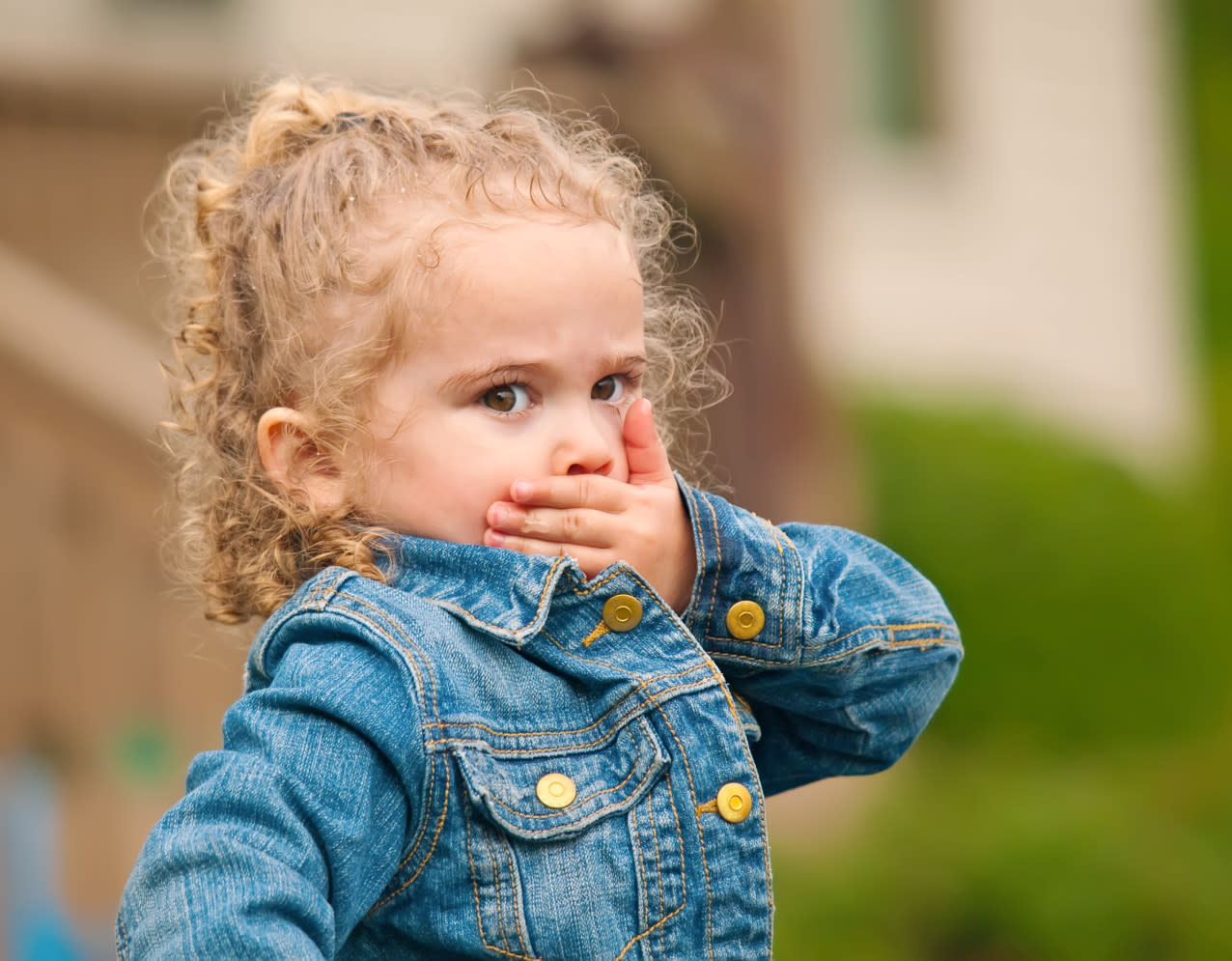
We’ve all witnessed it at one point or another: The angry mother who threatens to wash her child’s mouth out with soap because he said the word “s—.” The publicly embarrassed parent who sheepishly suggests their child use “dangit” rather than “d—it.” The mortified mom whose child says the word “f—,” and she reacts as though the child had pulled out a knife and attempted to stab the family dog.
Parenting is challenging enough — is all that really necessary?
Many friends and family members are surprised to know that in our home, swearing does not come with any harsh consequences or reprimanding for our child. She is free to do it as much as she feels necessary without any kind of punishment or correction.
As an education professional, I generally tend to curb my swearing out of habit.
My husband, however, has what you might consider a very … diverse vocabulary. He regularly drops an f-bomb just as casually and frequently as he drops words like “loquacious,” and “subjugation.” His daily cursing habit is so deeply ingrained, he has never bothered to adjust it since having children. It is natural that our daughter has picked up some of his daily vocabulary. As parents, we are totally OK with that.
Not because we get some kind of bizarre amusement in having an adorable daughter who also happens to have a potty mouth (she actually doesn’t), but as parents who believe in doing our best to model the behavior we expect out of our children, it would be hypocritical to hold our child to a standard that neither of us adheres to.
In our home, there is no such thing as “adult words,” there are simply words.
And we view it as our job as parents to demonstrate their purpose and meaning.
According to the book by Emma Byrne, Swearing Is Good For You: The Amazing Science of Bad Language, swearing is a normal and healthy part of our self-expression. By allowing swearing without penalty, our daughter understands the value of a spirited “s—!” and the cathartic feeling that a well-placed “f—!” can bring.
But this liberal, and perhaps even controversial, approach we have towards swearing isn’t aimed singularly at self-expression. More importantly, it’s been an opportunity to teach our daughter that her words have power, beyond the benevolent “please and thank you.” She understands that while curse words are acceptable in our own home, they might not be welcome or well-tolerated in other settings.
She’s learning about these words at home from her parents rather than from her peers at school.
Let’s be realistic. Many kids almost inevitably start experimenting with swear words, typically as early as the elementary years. This new use of language is often accompanied by a lack of concrete understanding of the words' meanings or purpose. By removing the shame and punitive energy surrounding swearing early and often, children are better equipped to make distinctions between words that are used as a healthy means of exclaiming or emphasizing, and words that serve no other purpose than to insult or degrade.
When our daughter inevitably encounters words that truly are unacceptable, for example, racial slurs and other derogatory terms, we take comfort knowing that her pre-existing knowledge of the impact that words can have will help her to understand more specifically why those kinds of words truly have no place being spoken. Rather than just designating impermissible words as “bad,” or “things we don’t say,” her social acuity will continue to be reinforced through awareness and understanding.
The American vernacular is changing.
Words that were once considered extremely offensive are becoming more benign. After his 2018 Texas Senate race loss, Beto O’Rourke famously declared to his campaign supporters “we are so f—ing proud of you,” to raucous cheers and applause.
Bill Nye the Science Guy is sometimes jokingly referred to a “Bill Nye the Swearing Guy.” Even former President Barack Obama has admitted to regularly using profanity, and expressed his outrage surrounding the BP oil spill of 2010 by proclaiming the need to figure out “whose a– to kick.”
I’m often asked if I’m worried that my daughter might curse in public.
The answer is … no. Harmless curse words exist and are part of our language. It is surprising in our modern times that swear words are still so frequently viewed as a reflection of one’s parenting. For far too long, a child publicly using a curse word has been inexplicably viewed as an unwelcome admission, a way of “outing” the fact that his or her parent(s) (gasp), also use those words.
It’s been a source of unnecessary embarrassment and needless shame. In a world where mothers can be shamed for practically any reason, let’s not let our children’s occasional swearing be one of them.




